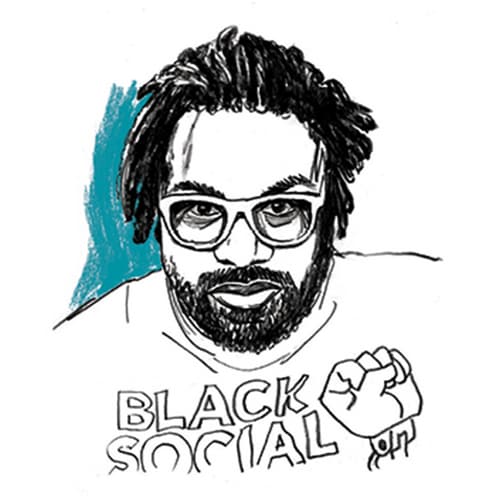
How to Understand Your Real Social Capital
Advice on how to tap into your skills and your network from the co-host and co-creator of the Black Social Capital Podcast
Theo Fowles (N.Y. ’05) is the co-host and co-creator of the recently launched interview series, the Black Social Capital Podcast. Fowles’ research interests and work sit at the intersection of education and media, with a focus on career development among students and rising Black professionals. “Dr. Theo” (his podcast shorthand) is currently the California Director of America Needs You, a college student mentoring initiative.
You say that regardless of a person’s background or position, “everybody has some sort of social capital.” What do you mean by that?
Everybody has to start with their own network. For some people, those networks extend into people in high profile positions. For others, it’s more friends and family. I would say your corps is one of your strongest networks because of the way it’s structured, and I would encourage you to tap into some of the smaller networks within the corps. The way you build your social capital is person by person. Think about reaching out to folks you may know who are also interested in education and technology, or teaching and policy.
And don’t look at anyone else’s network. At the end of the day, comparison is the death of all things. What I’ve learned in my own journey is that there’s no right way to get to exactly where you want to be. Even with people who seem to have large networks, it doesn’t mean that they’re using them to the best of their ability or to do the most impactful work. It may just mean they have a lot of followers.
What’s your advice for using your social capital to build a career that connects with your passions and purpose?
Well, one of the things that I like about the moment we’re in is that you really have the opportunity to stand on your beliefs and say, “Hey world, these are the things I’m excited about.” In previous generations, people might have said on their LinkedIn page, “I’m interested in medicine, or technology, or the policy pathway.” But now you can just be very upfront about all the connections you’re making and all the ways you want to collaborate and put it on a platform for people to see.
I’m passionate about building communities. I’m really interested in technology and how that shapes communities. I’m passionate about platforms for Black people and people of color. I’ve built all those skills that are a part of my narrative, and I put them at the forefront of how I present myself.
It used to be that people’s job titles or their places of employment or campuses were their main foundations of social capital. But in a time when people and the jobs they do are all in flux, I believe we’ve come to realize that our skills and the interests we bring to the table are our real capital.
You did your doctoral research on how former foster youth use social media to navigate higher learning. What’s your advice on using social media to build your social capital?
Be very purposeful about which platform you use, and for what. For a lot of people, Instagram is their go-to, but it’s personal. If you also have a business, create a separate Instagram page so you can keep your sanity and grow in a different way. If you’re on Twitter, use it to create those small groups we were talking about. I build out lists of people I follow in specific sectors and then create small communities by engaging with them: Hey, this person has some good ideas, I’m going to invest some time in posting about them. Or let’s use the example of LinkedIn. Say you’re at a webinar and you hear someone interesting you know you might want to work with. I’ll send them a LinkedIn message while they’re still on the panel and say, “Hey, I enjoyed your presentation today, I’d like to find a way to collaborate.” Take the action right in the moment, and then follow up with something more specific to solidify those ties.
Check out the Black Social Capital Podcast
Sign up to receive articles like this in your inbox!
Thanks for signing up!
Content is loading...


